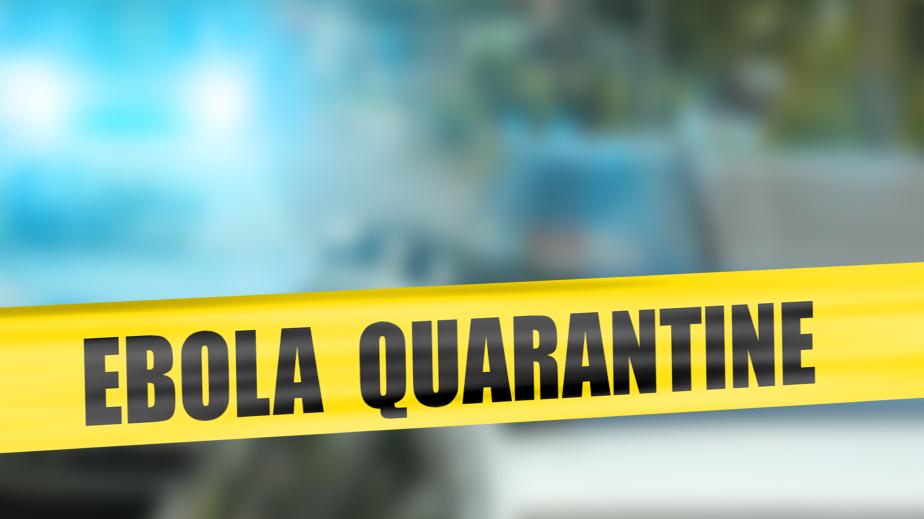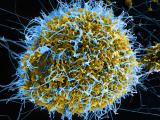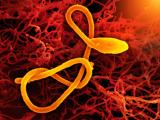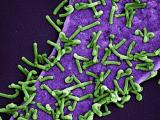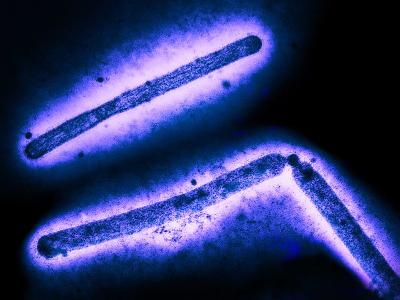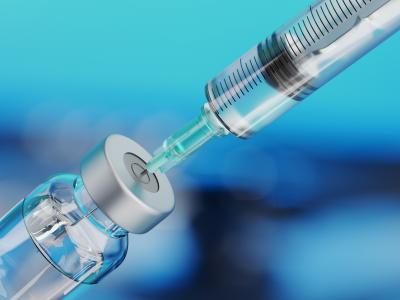Controversy continued to swirl today around travel restrictions and quarantine for health workers and others who return from serving in Ebola-stricken countries, with a Maine nurse defying a state order, while a Texas nurse returning from Sierra Leone has agreed to home quarantine.
Meanwhile, Doctors without Borders (MSF), the group that has been battling the outbreak in West Africa since it began and has more than 270 international healthcare workers in the field, said today that it's too early to tell if Ebola cases are slowing in Liberia, a possible trend noted yesterday by a World Health Organization (WHO) official.
Maine nurse breaks quarantine
Kaci Hickox, a nurse who was quarantined against her will in New Jersey last weekend after returning from an MSF assignment in West Africa, briefly broke Maine's quarantine order last night when she left her Fort Kent home to talk to reporters, the Associated Press (AP) reported. Today she went for an hour-long bike ride with her boyfriend, tailed by police who can't apprehend her without a court order.
A statement today from Maine's governor's office said negotiations with Hickox have failed, despite repeated efforts. Gov. Paul LePage said in the statement that attorneys for the state have been trying to work out an agreement that would meet health workers' needs while protecting the public.
According to the statement, Maine's in-home quarantine would require direct active monitoring, coordinating travel with state officials that excludes commercial or public transportation, exclusion from public places or gatherings, and exclusion from work. It would allow public activities, as long as health workers maintain a 3-foot distance from others, such as walking or jogging in a park.
LePage said the state is still willing to reach agreements on a case-by-case basis with returning health workers who are in the "some risk" category, as defined by the US Centers for Disease Control and Prevention (CDC).
Because of the failure to reach an agreement with Hickox, the governor said he will exercise full legal authority to protect public health and that Maine laws provide several options.
Hickox has tested negative for Ebola and hasn't had a fever, but one forehead scanner reading taken at the airport several hours after she was detained showed an elevated temperature, which prompted her initial isolation at a New Jersey hospital, triggering quarantine orders in New Jersey and New York.
Texas nurse agrees to home quarantine
Meanwhile, another nurse arrived at the Austin, Tex., airport yesterday and at Gov. Rick Perry's request agreed to home quarantine for the 21-day incubation period, along with active monitoring, according to a statement from Perry's office. The nurse, who wasn't identified, has no symptoms and falls into the CDC's "some risk" category.
Perry said he personally spoke to the nurse after her arrival to thank her for her heroic and selfless service. "This health care hero has made a great sacrifice in traveling abroad to minister to those who are suffering," he said. "Even now home in Texas, she continues to demonstrate her selflessness by agreeing to quarantine herself and further protect her fellow Texans."
Several states and the Department of Defense have announced mandatory quarantine policies for returning health workers and others that are more stringent than the CDC's, which put health workers in a category that would warrant active detailed monitoring, with restrictions on activities such as work and travel decided on a case-by-case basis.
MSF supports Hickox
MSF said yesterday that it strongly disagrees with blanket forced quarantine for health workers returning from Ebola-hit countries, because the curbs aren't based on established medical science. Health experts have emphasized that Ebola is transmitted only by contact with the body fluids of sick patients and that people infected with the virus can't spread it unless they are having symptoms.
"Kaci Hickox has carried out important, lifesaving work for MSF in a number of countries in recent years, and we are proud to have her as a member of our organization," the group said. "MSF respects Kaci’s right as a private citizen to challenge excessive restrictions being placed upon her."
The group said it supports scientifically grounded recommendations for all returning aid workers and that it has worked with health authorities in the United States and other countries to develop and fine-tune monitoring protocols to protect both health workers and the public.
MSF emphasized that quarantine would undermine efforts to curb the outbreak at its source in West Africa. It said in an Oct 27 statement that the prospect of being quarantined for 21 days upon return has prompted some health workers to reduce their time in the field and will discourage others from volunteering. It added that the developments could significantly disrupt field operations for MSF and other groups and lead to a shortage of desperately needed health workers, "precisely when the Ebola outbreak is as out of control as ever."
Isolating and treating sick patients is one of the tools for slowing the outbreak, with Ebola treatment units (ETUs) playing the central role. An official from the WHO)said yesterday there is still a big shortage of ETUs in Liberia and Sierra Leone. Of 56 that are needed, only 15 are open, with 22 in the process of being built and staffed. Nineteen more ETUs need to be built and staffed with medical workers.
State sees threat from medical meeting attendance
In another development, Louisiana health officials have asked those returning from the outbreak region not to come to the state for an upcoming meeting of the American Society of Tropical Medicine and Hygiene (ASTMH), which starts in New Orleans on Nov 2.
The ASTMH yesterday released a statement saying the nature of its work and the timing of its meeting understandably raise concerns of Louisiana authorities and that it has been coordinating with state officials.
It forwarded a letter to meeting registrants from the Louisiana Department of Health and Hospitals (LDHH) and the governors' Homeland Security and Preparedness Office, which outlines the state's Ebola travel policy and asks people who traveled to and returned from Guinea, Liberia, and Sierra Leone in the last 21 days to not attend the New Orleans meeting.
"These precautions are being taken out of an abundance of caution for the current situation, and certainly do not reflect a lack of appreciation for your service and sacrifice in efforts to treat and end the epidemic of EVD [Ebola virus disease]," Louisiana officials said in the letter.
MSF urges caution on signs of slowdown in Liberia
Also today, MSF called for caution in interpreting yesterday's WHO report of an apparent slowdown in Ebola cases in Liberia, particularly in the Monrovia area.
Yesterday Bruce Aylward, MD, MPH, the head of the WHO's Ebola response, said reports of empty treatment beds and accounts from frontline workers suggested a slowdown in Ebola activity in Liberia. Also, in its Ebola update report yesterday, the WHO said the weekly count of new cases in the Montserrado area, which includes Monrovia, stopped increasing in mid-September, but the agency cautioned that underreporting of cases persists.
In response to a query from CIDRAP News about the Liberian situation, Fasil Tezera, MSF head of mission there, said, "It is too soon to draw conclusions on the reduction of Ebola cases in Monrovia. While the number of admissions [current patients] in MSF's 250-bed Monrovia Ebola centre has dropped to around 80, we do not have a full picture of the extent of the outbreak and estimates might not be reliable. Mandatory cremation of dead bodies and a poor ambulance and referral system could also be reasons for this decrease in admissions.
"The present epidemic is unpredictable: we have seen a lull in cases in one area only to see the numbers spike again later. More aid is needed on the ground. It's time now to step up contact tracing, safe body management practices and community surveillance."
Other developments
- Members of a viral hemorrhagic fever clinical research team at Sierra Leone's Kenema Government Hospital yesterday published clinical findings on the first 106 patients who were diagnosed with Ebola infection in Sierra Leone. The report appeared in New England Journal of Medicine. The outbreak began in Guinea in March, but the first cases in Sierra Leone weren't confirmed until late May. Peak incidence rates were children older than age 15 and adults ages 26 to 40. The incubation period was 6 to 12 days, with an overall case fatality rate of 74%, similar to other outbreak areas and earlier events. Vomiting and diarrhea were common, and bleeding was an infrequent finding.
- China is vulnerable to an Ebola outbreak, because of its increasing economic ties to Africa and poor infection control practices, Peter Piot, MD, MPH, said today at an Ebola conference in Tokyo, according to Agence France-Presse (AFP). Piot is known for helping to identify the Ebola virus in 1976 and is director of the London School of Hygiene and Tropical Medicine. He said thousands of Chinese workers are in Africa and that it wouldn't be impossible for one of them to bring the disease home. An infected traveler could surface anywhere in the world, and screening of incoming travelers isn't very effective, he said.
- European drug regulators announced yesterday that they have given GlaxoSmithKline scientific advice on the development plan for its Ebola vaccine. The European Medicines Agency (EMA) said in a press release that this is the first time it has given rapid scientific advice using an accelerated procedure. It added that it will assess any data in a "rolling review" as soon as they are available.
See also:
Oct 30 AP story
Oct 30 Maine governor's office statement
Oct 29 Texas governor's office statement
Oct 29 MSF statement
Oct 27 MSF statement
Oct 29 ASTMH statement
Oct 29 WHO update
Oct 29 N Engl J Med report
Oct 30 AFP story
Oct 29 EMA press release
